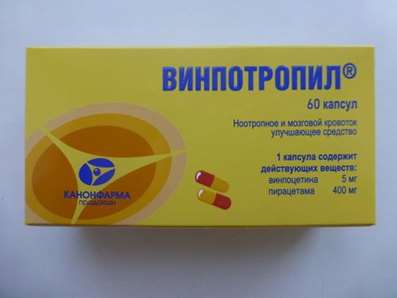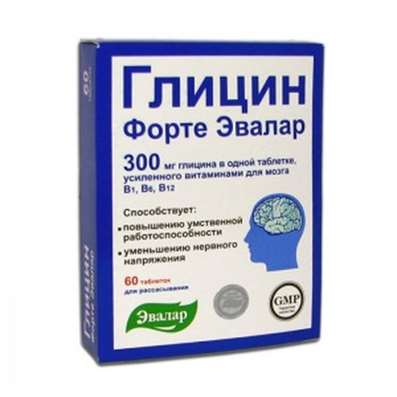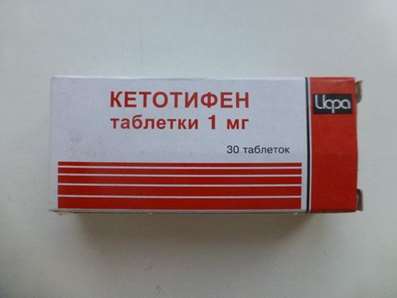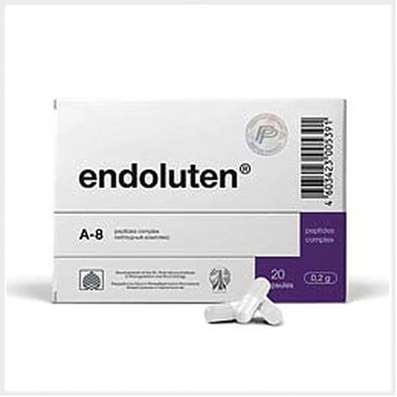Instruction for use: Mebicar
I want this, give me price
Dosage form: substance-powder; tablets
Active substance: Tetramethyltetraazabicyclooctandione
ATX
N05BX Others Anxiolytics
Pharmacological group:
Anxiolytic agent (tranquilizer) [Anxiolytics]
The nosological classification (ICD-10)
F10.1 Harmful Alcohol Use: Drunken Drunkenness; Dipsomania; Quarterly drinking; Drunken state; Obsessive attraction to alcohol; Pathological attraction to alcohol; Alcohol abuse; Excessive use of alcohol
F10.2 Syndrome of alcohol dependence: Alcoholism; Alcohol addiction; posiomania; Dependence on alcohol; dipsomania; drunken state; alcohol abuse; Ideatornoy violations in alcoholism; Quarterly booze; Obsessive craving for alcohol; Neurotic symptoms of alcoholism; Craving for alcohol; Psychoorganic syndrome in chronic alcoholism; Reduced craving for alcohol; chronic alcoholism
F17.1 Harmful use of tobacco: Abuse of nicotine
F17.2 Nicotine addiction: Craving for smoking; Attraction to smoking tobacco; Tobacco dependence; Abstinence syndrome with smoking cessation; Abuse of nicotine
F19 Mental and behavioral disorders caused by the simultaneous use of several narcotic drugs and the use of other psychoactive substances: Psychological and physiological dependence on psychoactive substances
F40 Phobic anxiety disorders: A state of fear; Fear; Phobia; Phobic disorders; Phobias; Anxiety neurosis; Anxiety of anxiety; Obsessive fears; Acute anxiety disorder; Paroxysmal fear syndrome; Feeling of fear; Night Fears
F41 Other anxiety disorders: Anxiety status; Anxiety; Chronic alarm; Sense of anxiety; Anxious-hypothetical states; Stopping an alarm; Nonpsychotic anxiety disorders
F41.2 Mixed anxiety and depressive disorder: Depression with anxiety-depressive components; Mixed anxiety-depressive conditions; Anxiety Depression; Anxious and depressing mood; Anxiety-depressive state; Anxious-depressive conditions; Anxiety-depressive syndrome; Anxious-Neurotic Conditions
F41.9 Anxiety disorder, unspecified: Neurotic disorders with anxiety syndrome; Severe anxiety; Neuro-like symptomatology; Neuro-like disorders; Neuro-like conditions; Neuroses with anxiety symptoms; Neuroses with a sense of anxiety; Acute situational and stress anxiety; Acute attack of anxiety; Severe Anxiety; Situational Anxiety Disorder; State of anxiety; Anxious and delusional component; Alarming state; Anxiety; Anxiety Disorders; Anxiety syndrome; Sense of anxiety; Alarm conditions; Chronic neurotic anxiety; Susto; Psychopathy with a predominance of anxiety and anxiety; Anxiety disorders in neurotic and neurosis-like states; Anxious neuroses; Anxious and delusional state; Acute situational stress alarm; Depressed mood with elements of anxiety
F48.9 Neurotic disorder, unspecified: Neurosis; Secondary neurotic symptom; Other neurotic conditions; Neurosis with increased irritability; Neuroses; Neuroses of all kinds; Neuroses with retardation; Neuroses of the heart; Neurotic disorders in alcoholism; Neurotic disorders with retardation; Neurotic disorders with anxiety syndrome; Neurotic reactions; Neurotic symptoms with alcoholism; Neurotic states; Neurotic syndrome; Neurotic disorder; Attack of neurological dysfunction; School neurosis; Emotional Stress
F60.3 Emotionally unstable personality disorder: Mood swings; Mental lability; Emotional fence; Emotional detachment; Mood Change; Lability of mood; Instability of emotional background; Mixed emotional disorders; The state of emotional stress; Emotional lability; Emotional tension; Emotional instability; Emotional instability; Mood disturbance; Mood disorders; Decreased mood; Deterioration of mood; Mood swings
I25.2 Transferred last myocardial infarction: Cardiac syndrome; Myocardial infarction; post-MI; Rehabilitation after myocardial infarction; Reocclusion of the operated vessel; Angina postinfarctnaya; Status after myocardial infarction; Status after myocardial infarction; myocardial infarction
I25.9 Chronic ischemic heart disease, unspecified: CHD; Insufficiency of coronary circulation; Coronary atherosclerosis in patients with coronary artery disease
R07.2 Pain in the heart: neuroses of the heart; Myocardial ischemic pain; Pain syndrome in myocardial infarction; cardialgia; cardioneurosis; Cardiac syndrome; Pain in cardiac patients; Cardialgia on background dyshormonal myocardial dystrophy; Functional cardialgia; Psevdostenokardiya; pericardial pain
R45.4 Irritability and anger: Neurosis with increased irritability; Outbursts of anger; Anger; Resentment; Increased irritability; Increased irritability of the nervous system; Irritability; Irritability in neuroses; Irritability in psychopathic disorders; Symptoms of irritability; Dysphoria
R53 Malfunction and fatigue: Asthenic disorders; Asthenic conditions; Asthenic phenomena; Asthenic syndrome; Asthenic disorder; Asthenic state; Asthenic phenomenon; Asthenia; Astheno-adynamic subdepressive state; Asthenovegetative symptoms; Asthenic-autonomic symptomatology; Asthenic autonomic disorder; Asthenodepressive disorder; Astheno-depressive disorder; Asthenodepressive state; Astheno-depressive state; Asthenoneurotic disorder; Astheno-neurotic state; Fast fatiguability; Flu of young workaholics; Influenza yuppie; Diabetic asthenia; Exhaustion of the nervous system; Exhaustion physical; Malaise; Nervous depletion with depression; General mental fatigue; General physical fatigue; General malaise; Pathological fatigue; Increased fatigue; Mental fatigue; Mental exhaustion; Astenovegetative Syndrome; Chronic Fatigue Syndrome; Decrease in total activity; The state of increased fatigue; Conditions of increased fatigue; Mental fatigue; Prostration; Fatigue; Fatigability; Physical fatigue; Physical and mental fatigue; Physical overwork; Functional asthenic conditions; Chronic fatigue; Chronic asthenic conditions
Z73.2 Lack of rest and relaxation: Mental fatigue; High mental loads; General weakness; State of fatigue
Composition
Tablets - 1 table.
active substance: mebicar 0.3 g
auxiliary substances: povidone (polyvinylpyrrolidone high molecular weight) - 0,0015 g; calcium stearate - 0.0015 g
Description of dosage form
Tablets of white color, flat-cylindrical with a facet and a risk.
Pharmachologic effect
Mode of action - anxiolytic.
Pharmacodynamics
The drug refers to anxiolytic, stress-protective, nootropic drugs. Improves the oxygen supply of myocardial tissue; normalizes the disturbed electrolyte balance of blood, the content of potassium ions in plasma, erythrocytes and myocardial cells; promotes the enhancement of protein synthesis and the increase in energy resources of the cell.
Regulates disturbed sleep at night without direct sedative action. Has no cholinolytic and muscle relaxant effect, does not violate the coordination of movements. Relieves or removes nicotine withdrawal.
Pharmacokinetics
It is excreted completely in the urine within 24 hours.
Indication for the Mebicar
neurotic disorders (irritability, emotional lability, anxiety, anxiety-depressive, phobic, panic disorders), which developed as a result of exhausting psycho-emotional, neuropsychic and physical exertion;
in complex therapy for the treatment of patients with cardialgia, ischemic heart disease and rehabilitation after myocardial infarction;
to reduce the craving for tobacco smoking;
neurosis-like conditions in patients with alcoholism, to reduce the pathological attraction to alcohol and psychoactive substances;
to improve the tolerability of neuroleptics and tranquilizers.
Contraindications
Hypersensitivity.
Side effects
Allergic reactions (skin itching), at high doses - a short-term insignificant decrease in blood pressure, hyperthermia (an increase in body temperature by 1-1.5 ° C), dyspeptic disorders.
Reduction of blood pressure and body temperature are not indications for drug cancellation and normalize on their own.
Interaction
Strengthens the effect of sleeping pills and narcotic drugs.
Dosing and Administration
Inside, regardless of food intake.
By 0,3-0,9 g 2-3 times a day.
The maximum single dose - 3 grams, daily - 10 g. The course for prevention and treatment - from several days to 2-3 months, depending on the situation, with mental illness - up to 6 months.
Release form
Tablets 0.3 g. For 10 tablets. in a contour squamous packaging. 1 or 2 contour mesh packages are placed in packs.
Conditions of leave from pharmacies
According to doctor's prescription.
Storage conditions of the drug Mebicar
In a dry place.
Keep out of the reach of children.
Shelf life of the drug Mebicar
4 years.
Do not use after the expiry date printed on the package.

 Cart
Cart





